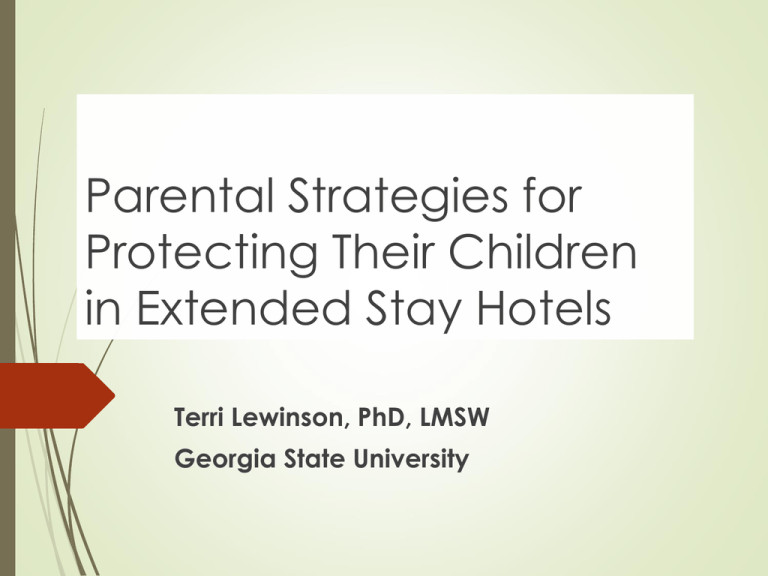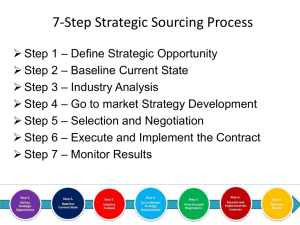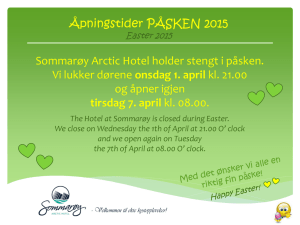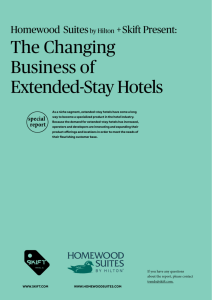Extended-Stay Hotel As Home
advertisement

Parental Strategies for Protecting Their Children in Extended Stay Hotels Terri Lewinson, PhD, LMSW Georgia State University My Extended Stay Research - Use photography to understand residents’ descriptions of their extended-stay hotel environment. Specifically, how do residents: Describe hotels as homes? Perceive hotel environments’ influence on wellbeing? Cope with hotel-housing concerns? Experience social service barriers? Problem Virtually hidden population of homeless families in extended stay hotels Families find hotels to be both a refuge and prison Hotel conditions provide benefits and challenges Parental Coping Strategies: Shielding Their Emotions Distracting Their Children Maintaining Their Standards Keeping Their Guards Up Parental Coping Strategies: Shielding Their Emotions “I want to cry out but…I'll look at her and I won't let her see me… [But] that just bothers me to no end.” – Bobby Parental Coping Strategies: Distracting Their Children Providing toys/ video games Playing family games Cooking/baking to preserve traditions Allowing extended visits away Parental Coping Strategies: Maintaining Their Standards • For employment: “Dollar Tree, I went and I signed an application. They’ll hire me but they’re looking for a night person. I can’t be a night person. I have my two kids. … I’ll have to leave there here by themselves and I’m not going to do that.” – Sophia • For housing: …”the [social service] assistant did not want to keep me in the area. And the one thing that really kind of irritated me with them the kids was already situated here. And they wanted to move us all the way to Norcross to an extendedstay that’s very drug-infested and very open with prostitution. I did not want to go there and because of that, it put them in a way where they didn’t want to assist here.” Parental Coping Strategies: Keeping Their Guards Up • “I went to the place where I’ve had a storage unit and I knew that that place locked their gates at 9. So I secured the back of the car and put pallet and pillows for the kids to sleep. And, I pretty much stayed up all night watching them. (cries). And I waited till the gate closed. Then I knew that we were safe and nobody could come in until 6 the next morning. And we would get up and I would get them cleaned up and ready for school and take them to school. And we’d start over the next day. But um that was at a time when there was no money.” – Constance Thank You Questions? Publications Lewinson, T. and Collard, C. (2012). Social service barriers experienced by low-income extended-stay hotel residents. Families in Society, 93(2), 74-79. Lewinson, T. (2011). Extended stay motels. Encyclopedia of Housing, 2nd ed. Sage. Lewinson, T. (2011). Capturing environmental affordances: Lowincome families identify positive characteristics of a hotel housing solution. Journal of Community & Applied Social Psychology, 21(1), 55-70. Lewinson, T. (2010). Residents' coping strategies in an extended-stay hotel home. Journal of Ethnographic and Qualitative Research, 4(4): 180-196. Lewinson, T., Hopps, J. G., & Reeves, P. (2010). Liminal living in an extended-stay hotel: "Trapped" inside a housing solution. Journal of Sociology and Social Welfare, 37(2), 9-34.








